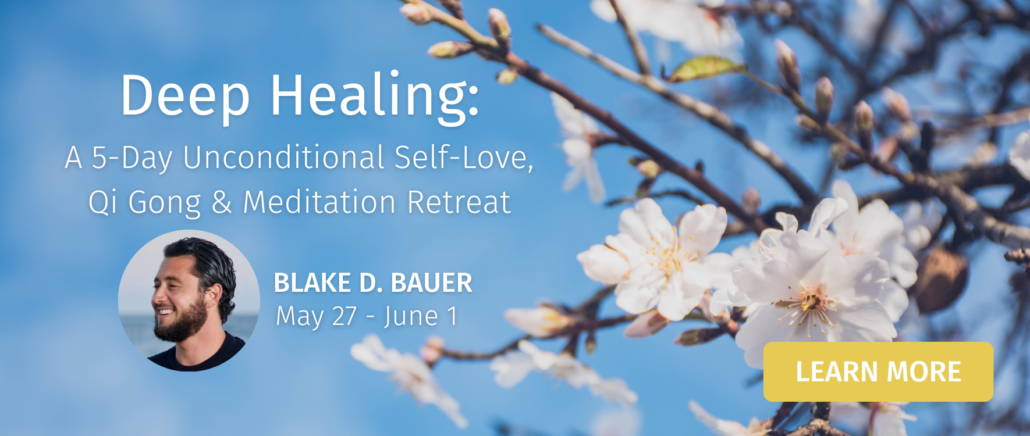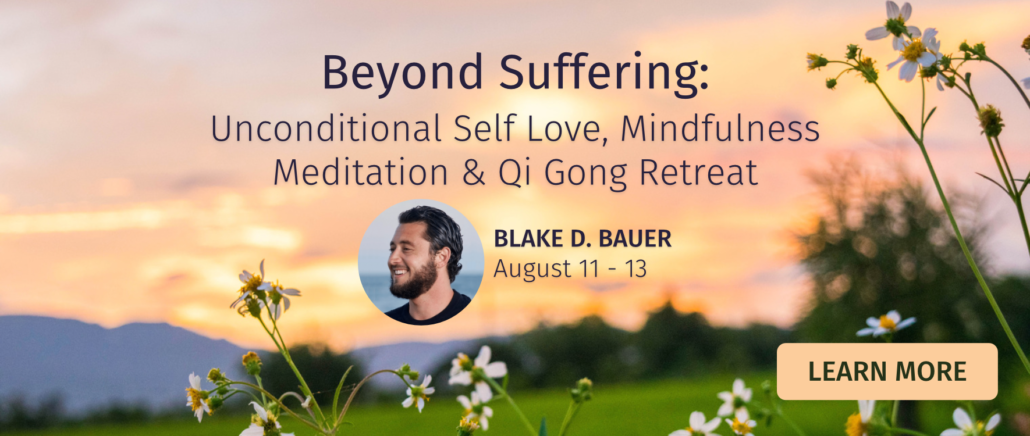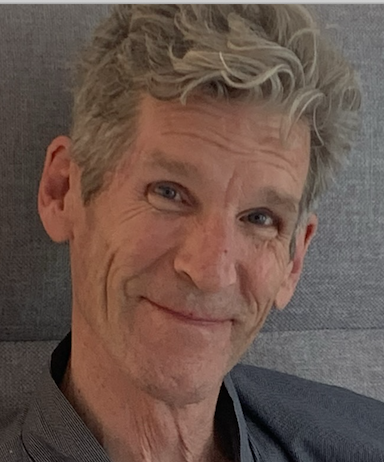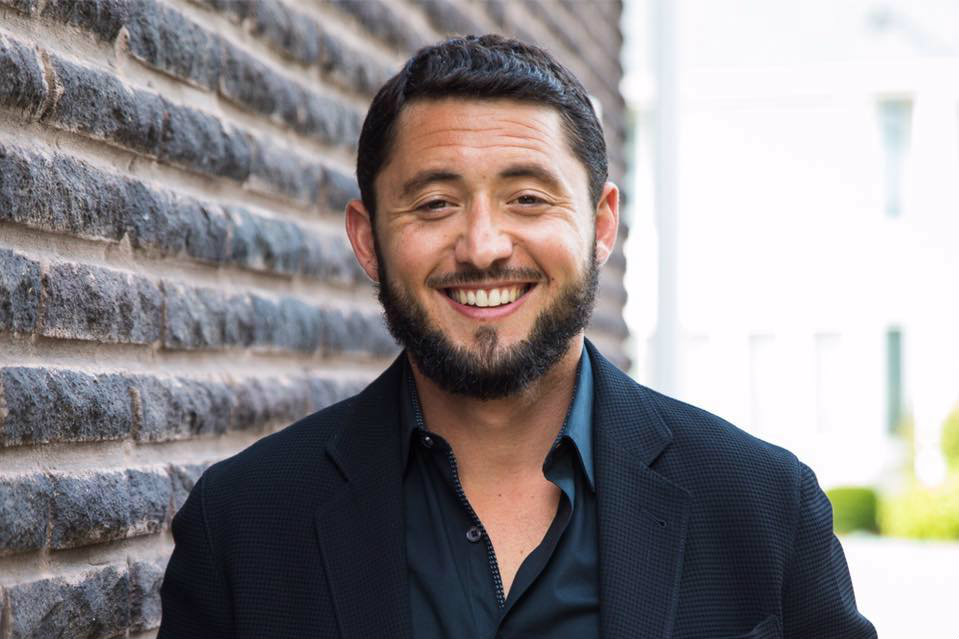Strong Mental Health In Five Practical Steps
By Blake D. Bauer
Step 1: Express Your Emotions Honestly and Kindly
Our mental wellness is intimately connected to our emotional health. And our relationship to our emotions directly impacts our mind and thought processes far more than we realize. A significant amount of our unhealthy or negative thoughts are in fact symptoms of repressed emotions. These overwhelming or imbalanced thoughts are alerting us to the deeper feelings, needs, and desires that we’re ignoring or internalizing.
Throughout a given day we’re either aware of what we’re feeling and then expressing it honestly and kindly, or we’re not. When we internalize our emotions regularly, we literally create a build up of inner tension, which then causes physical stress and an increase in cortisol levels. This leads to further psychological stress, negative thinking, a lack of tolerance, limited patience, and the kind of unhealthy reactions that hurt both ourselves and the people around us. Over time, internalizing what we feel very literally causes depression and leads to further struggle in all life areas.
Every time you internalize your emotions, you’re not only rejecting your true self and hurting yourself, but you’re literally causing stagnation in the flow of energy and blood in your body, which always translates into depressed, agitated and frustrated thinking. This process becomes a vicious cycle that actually weakens our immune system and keeps unhealthy lifestyle habits in place. If we feel we do not matter — that our feelings, needs and goals do not matter to ourselves or to the people around us — this form of self-harm grows into resentment, pessimism and eventually physical illness. Maintaining the healthy flow of blood, energy, and emotion is critical to keeping our mental and physical immune system strong. The only practical way to do this is to honor what you truly feel, need and want on a daily basis, and share it with whomever you’re in relationship with.
Simply expressing yourself is however not quite enough. There is one more vital step. The key to expressing ourselves effectively is understanding the importance of expressing what we feel as kindly and mindfully as possible. Most of us learned very aggressive forms of communication that hurt and push people away. And these habits leave us reacting mentally in ways that create shameful, guilty and self-critical thoughts. For example, if you think about a situation where you’ve been upset, deep down you likely felt hurt, frustrated, angry or misunderstood. But rather than knowing how to say ‘I feel hurt…’ or ‘I feel angry…’ we tend to point the finger, blame, curse, raise our voice, and say mean things that push people away. This then causes further distance, misunderstanding, and regret because deep down we really don’t want to speak in hurtful ways, even when we’re hurting. In simple terms, we cannot maintain mental wellness unless we learn to be kind and mindful with our words in every situation.
Step 2: Act In Integrity
We often feel one way, and then say or do the opposite. Following on from the above step, it is a critical to our mental wellbeing to act in alignment with what we truly feel, need and want. Each time you allow fear, guilt, shame, or self-doubt to stop you from moving in the direction you genuinely feel is right or best, you literally hurt yourself and stop your blood, energy, emotion and immune system from flowing properly. The result of this dynamic is always negative thinking, inner conflict, and a weakness in our mental health.
If you reflect on your life today, you’ll most likely recognize a situation where you feel something you’re not expressing, or where you want to take an action that you’re not taking. If you ask yourself why you’re not 100% in integrity in these situations, you’ll discover that you hold a belief that if you express yourself honestly or you act in alignment with your true feelings, things will not work out. In other words, you’ll see that you do not trust life fully because if you did, you would have faith that you can be 100% true to yourself and everything will be ok.
We don’t realize that our self-doubt is actually a symptom of all the times in the past that we have betrayed our true feelings, mistreated ourselves, and not acted in integrity. So when you say you do not trust life, what you’re really saying is you do not trust yourself. If you think about how you’ve probably treated yourself over the course of your life, and how many times you’ve betrayed, hurt, or been cruel to yourself, it becomes easy to see why you dis-trust both yourself and Life. Paradoxically, the only way to heal your self-doubt and low self-esteem is to act on what you truly feel, need and want, even though you may be scared or uncertain. Over time, this vulnerable honesty with yourself and with others builds into deep self-confidence, self-respect, and belief in yourself.
Step 3: Take Time and Space for Yourself
Time alone, to be with your thoughts and feelings, to move at your natural pace, to care for your body, and to do things that make you feel alive and well, is another critical key to mental wellness. We all need space each day to breathe, reflect, relax, move, or do things that bring us joy and make us feel well. Without this personal time, there can be no health, happiness or clarity. It’s life changing to seriously consider how you might create more space in your schedule, so you’re not always over committed, rushed and stressed. This might entail waking up a bit earlier, saying no to plans with friends or family, or not scheduling every hour of your day in the name of productivity. Even in terms of self-care, it’s ironic when you hear people rushing and stressed to get to a yoga class. This approach becomes counter productive when you’re always pushing yourself, or trying to please everyone around you. Try to slow down, stop running, and listen to your deeper feelings and needs. Our mind needs time to unwind and relax if we want to function and live at our best.
Step 4: Take Care of Your Mind
What you think about and what you give your attention to throughout the day literally shapes your life. If your thoughts are scattered or negative, then your whole day is going to feel the same. For this reason, it is critical that you develop a healthy and deeply intimate relationship with your mind. Practically speaking, the morning offers the greatest opportunity to consciously create a day that feels good to you and is supportive of your mental health. The thoughts you think when you first wake literally set the tone for the type of day you’re going to have. If you wake feeling anxious or stressed, and you don’t do anything to shift it, your day is going to be full of anxiety and tension. However, if you intentionally take 10–15 minutes in the morning to take care of your mind, you can prevent yourself from feeling spread thin and then go about your day feeling more present, clear and centered. When you break it down, your habits of thought in the morning basically govern your entire life. So understanding how to work with your thoughts in the healthiest way upon waking is essential to taking care of yourself, creating what you want in life, and simply feeling well.
Simple Deep Breathing Meditation
Wherever you are, take a few slow, deep breaths into your belly or lower abdomen. After you read this section, you can close your eyes if you’d like to. I recommend closing your mouth and breathing through your nose. Feel your whole body, starting at your feet, moving up your legs to your hips against the chair you’re sitting on. Then move your attention upward to the top of your head, and then down to your arms to your fingertips. Please breath deep into any tension you feel and just let yourself be. Using each inhalation to expand and open your body from the inside out, you can literally create more space within to welcome everything you’re thinking, feeling and experiencing here in this moment. Simply focus on your body and your breathing, and when your mind begins to wander just notice it, and then intentionally bring your attention back to your body and your breathing. It’s very helpful to say the word ‘thinking’ to yourself each time you notice you are lost in thought. It is an objective prompt for you to make a choice to bring your awareness back to your body and your breathing when you notice you were carried away by your thinking habits. Practicing this daily, starting fist things in the morning, will help you to 1) stop feeling powerless over negative and overwhelming thoughts, and 2) it will help you feel more centered and clear mentally.
Step 5: Practice choosing and guiding your thoughts.
Most of us don’t know that we have the power to choose thoughts and guide our thinking towards things that make us feel well. Just like driving a car, when your mind starts to drift toward negative thoughts that cause you stress, you can ‘turn the wheel’ and guide your mind back in a healthier direction. The main reasons we’re not aware of our innate ability to do this is because one, we simply never learned how to and two, because most people just allow their thoughts to run wild and unchecked, which is very damaging and directly undermines our mental wellbeing. Many people also believe they are their thoughts, or the voice in their head, which is not true. Our thoughts are only a part of us, but they are a very powerful part. If we don’t develop a healthy understanding of them they will sabotage our mental health and happiness.
Here are three very simple yet effective ways to guide your thinking. Please note that each step is defined by you exercising your innate capacity to choose what you think about and to guide the direction of your thoughts.
- Choose right now to think about 3 things you are truly thankful for. When you have time, try making a list of every little thing you can think of, that you’re grateful for. Notice how you can shift how you feel by intentionally choosing what you think about.
- Choose right now to think about 3 things that you really want in your life, such as; to be happy, to travel somewhere, to take a class, to create an amazing relationship, etc. Here again, it’s helpful to make a list of everything you want, when you have space. Notice how you can shift how you feel by intentionally choosing what you think about.
- Send prayers or well wishes to the people you care about most. Think about the most important people in your life and intentionally wish them the best in health, happiness, love, finances, and whatever additional needs they have.
For optimal results, I recommend doing at least 10 minutes of meditation in the morning to set the tone for your day, and then immediately after, intentionally take these three steps in choosing and guiding your thoughts. This practice first thing in the morning, before doing anything, is a key to breaking through wherever you’re stuck and creating your day in a way that supports your mental wellness.
Join Blake this summer at DMC!
 Blake D. Bauer
Blake D. Bauer
Blake D. Bauer is the author of the international bestselling book You Were Not Born To Suffer. He has helped thousands of people around the world who could not find lasting solutions from conventional medicine, psychiatry, or religion. Blake has an extensive background in psychology, alternative medicine, nutrition, traditional healing, mindfulness meditation, and qi gong. Based on both his personal experience overcoming deep suffering, addiction, and adversity, as well as his professional work with over 100,000 people worldwide, his teachings integrate what he’s found to be the most effective approaches to optimal mental, emotional and physical health.












